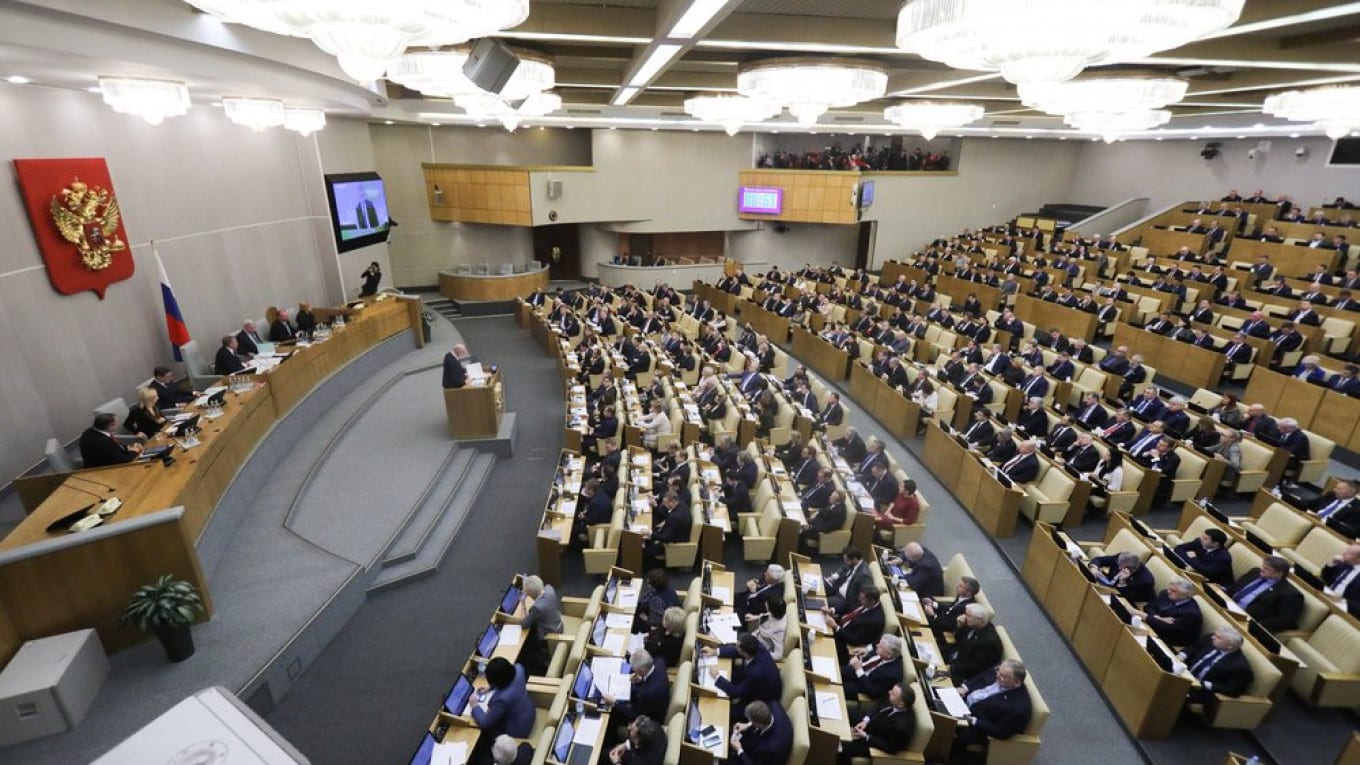Moscow has not yet announced the exact date of the referendum on amendments to the Constitution. But work on this matter has already been intensified. The Central Election Commission of the Russian Federation has allocated finances for the referendum and started preparation to the all-Russian voting.
On March 11, the State Duma approved the full package of the amendments to the Constitution, on March 12, they were approved by regional parliaments, and on March 15 the positive decision was adopted by the Constitutional Court of Russia. This was hastily adjusted to the April 22, for which the national vote was scheduled.
Putin’s plans to reset the count of his presidential terms were disrupted by the coronavirus pandemic. The national referendum had to be postponed because of the quarantine and the difficult epidemiological situation in Russia.
However, given the events of recent months the Kremlin was forced to prompt legalization of the constitutional amendments. The Russian economy shows all the prerequisites to step into a severe and protracted crisis, and the resulting rise in protest sentiment may make it impossible to legitimize the constitutional amendments.
Rosneft and Gazprom’s failures in the world market have deprived the federal budget of a significant part of its revenues and created the prerequisites for scraping of social programs for the population. The negative impact of the coronavirus epidemic on Russian economy and the decline in oil prices also exert pressure, which could lead to a 16% decline in GDP in the first half of the year. In addition, analysts predict bankruptcy of about 65% of small and medium-sized enterprises, which will lead to spurts in unemployment.
The untimely and insufficient measures taken by the authorities to support people and economy have become the main factor behind the growth of protest sentiment in Russia.
In this context, discontent with the federal government in Russian society has sharply increased. The Kremlin’s political technologists understand that Putin’s failed rating, as recorded by the Russian Public Opinion Research Center (VTSIOM) and Public Opinion Foundation (FOM), does not contribute to the consolidation of all the country’s social groups in advance of the all-national vote for amendments to the Russian Constitution. Moreover, 27% of President’s support contrasts sharply with the results of the referendum already prepared in Moscow. That is why the Russian top officials retorted so sharply to the Bloomberg publication, calling the data of the VTSIOM open poll misinformation.
Obviously, the Kremlin understands that it is impossible to rectify the crisis situation quickly. In this regard, the question is to rush the necessary legislative changes as soon as possible, before the difficult phase of the crisis and the increase of public discontent. Therefore, voting on the new Constitution and the Victory Parade are esteemed as urgent measures.
These two events are expected to be combined and held on the same day, 24 June. This day in 1945, a Victory Parade was held in Moscow. The expectation is that the parade will perform its mobilization duty and contribute to the patriotic rise and positive mood of the voters. The presidential administration expects a turnout of 55% and the “loyal” voting of 65%.
Such another dates as July 8 – the day of family, love and loyalty, September 3 – the day of the end of the World War II, and November 7 – the day of the October Revolution were considered. But the Kremlin political strategists argue that it is critically dangerous to postpone legalizing of Putin’s lifelong rule. The social and economic situation in Russia will only worsen, and Putin’s rating will fall respectively.
That is why June 24th is the most appropriate date to keep the existing balance of power painlessly.
But if the Kremlin fails to seize this opportunity to maintain its positions for various reasons, it may be repulsed by a protest vote. It will be nonsusceptible to falsification because of its mass nature.
Thus, Putin’s time for cementing the established relations with Russian society and extending the powers of the ruling elite expires.

